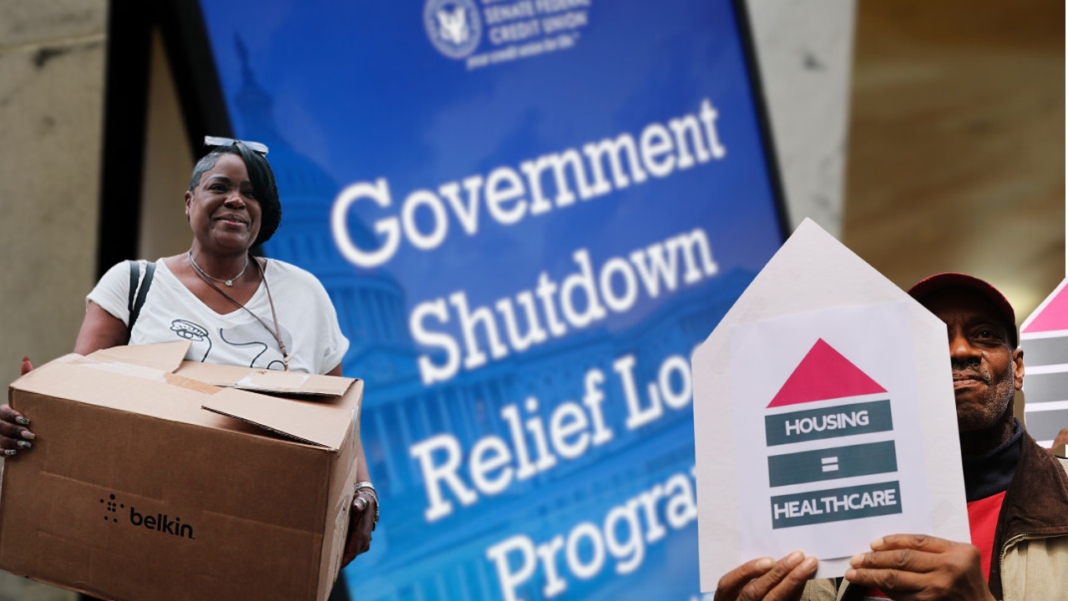The federal government shutdown has now exceeded a week, creating a growing sense of urgency among civil rights leaders, especially as its repercussions are felt most acutely in Black communities across the nation. The shutdown not only highlights political gridlock but also lays bare the profound impact on vulnerable populations, raising alarms that—if left unresolved—could lead to a long-lasting economic and social crisis.
Prominent civil rights organizations are sounding the alarm, asserting that the continuation of this shutdown will exacerbate existing inequalities. The president of the largest federal workers’ union warns that Black Americans, who are already facing disproportionate economic challenges, will experience even more hardship without a swift resolution between Democrats and Republicans.
A coalition of influential civil rights leaders has publicly stated: “The ongoing government shutdown is causing real harm to communities across the country. It’s time for those in power to take responsibility and pass legislation that would safeguard critical services for millions of Americans, including Black communities.” This statement embodies the collective frustration and urgency felt by those witnessing the direct effects of governmental inaction.
Many in the coalition predict dire repercussions if the shutdown persists. They warn of significant challenges such as furloughed federal workers not receiving their paychecks, veterans and military families losing essential federal support, and women and children being cut off from crucial food assistance programs like WIC. Additionally, critical services for Social Security and Medicare recipients are also slated for delays, jeopardizing the health and welfare of countless individuals.
The leaders of this civil rights coalition include renowned figures such as Marc H. Morial of the National Urban League and Rev. Al Sharpton of the National Action Network. They, along with other esteemed advocates, emphasize that this issue transcends a mere political stalemate; it represents a failure of leadership and a grave disservice to millions. “This shutdown is not just a political impasse; it’s a failure of leadership,” they declared.
Everett Kelley, the national president of the American Federation of Government Employees, pointed out that Black Americans represent a larger segment of the federal workforce than their share of the overall U.S. population—comprising over 18%. His remarks underscore the vulnerability of this demographic, especially as the shutdown leads to financial strain for many. “It’s going to disproportionately affect the Black community in so many ways,” Kelley explained, illustrating how the absence of regular paychecks complicates how individuals manage basic expenses like mortgages and medical bills.
The atmosphere of anxiety is palpable. Federal workers, many of whom are Black, are currently enduring immense stress as they cope with uncertainty over their financial futures. With each passing day of the shutdown, the risk of losing livelihoods looms larger. Through this turmoil, union leaders have heightened their advocacy, calling for swift, decisive actions from both Congress and the White House.
Moreover, recent actions from the Trump administration have garnered significant backlash. Reports indicate that some federal workers may be permanently terminated amid the shutdown, a move criticized by bipartisan voices. The administration’s suggestion that furloughed workers may not receive back pay, despite a clear legal precedent requiring it, adds to the pervasive atmosphere of unrest, prompting labor unions to file lawsuits against such “arbitrary, cruel, and punitive” measures.
According to Kelley, this maneuver serves to intimidate federal employees, branding them as scapegoats in a larger political game. This tactic not only undermines the dignity of workers but also sheds light on the challenges faced by many Black employees specifically, as the unemployment rate for this group has reached a staggering 7.5% amidst soaring inflation.
The long-term impact of the shutdown stretches far beyond immediate financial woes. Civil rights leaders emphasize that crucial federal services—including public health research—risk being drastically hampered, potentially delaying advancements in life-saving initiatives. With the Federal Drug Administration unable to review new drug applications, the ongoing quest for innovation and equitable access to medical treatments hangs in the balance.
The ramifications extend to housing as well, with the Department of Housing and Urban Development in danger of halting grant processes and inspections vital for fighting discrimination and ensuring safe living conditions. Furthermore, delays in funding could lead to a crisis in the justice system, with federal courts at risk of running out of money, ultimately denying many people their right to justice.
As the civil rights coalition aptly notes, the White House bears the responsibility of steering legislative negotiations to end this crisis. “The White House must demonstrate leadership and bring the parties to the table to restore government operations and preserve access to affordable healthcare for millions,” they argued. Their call resonates deeply as the stakes continue to rise for affected communities, underscoring the urgent need for resolution.



